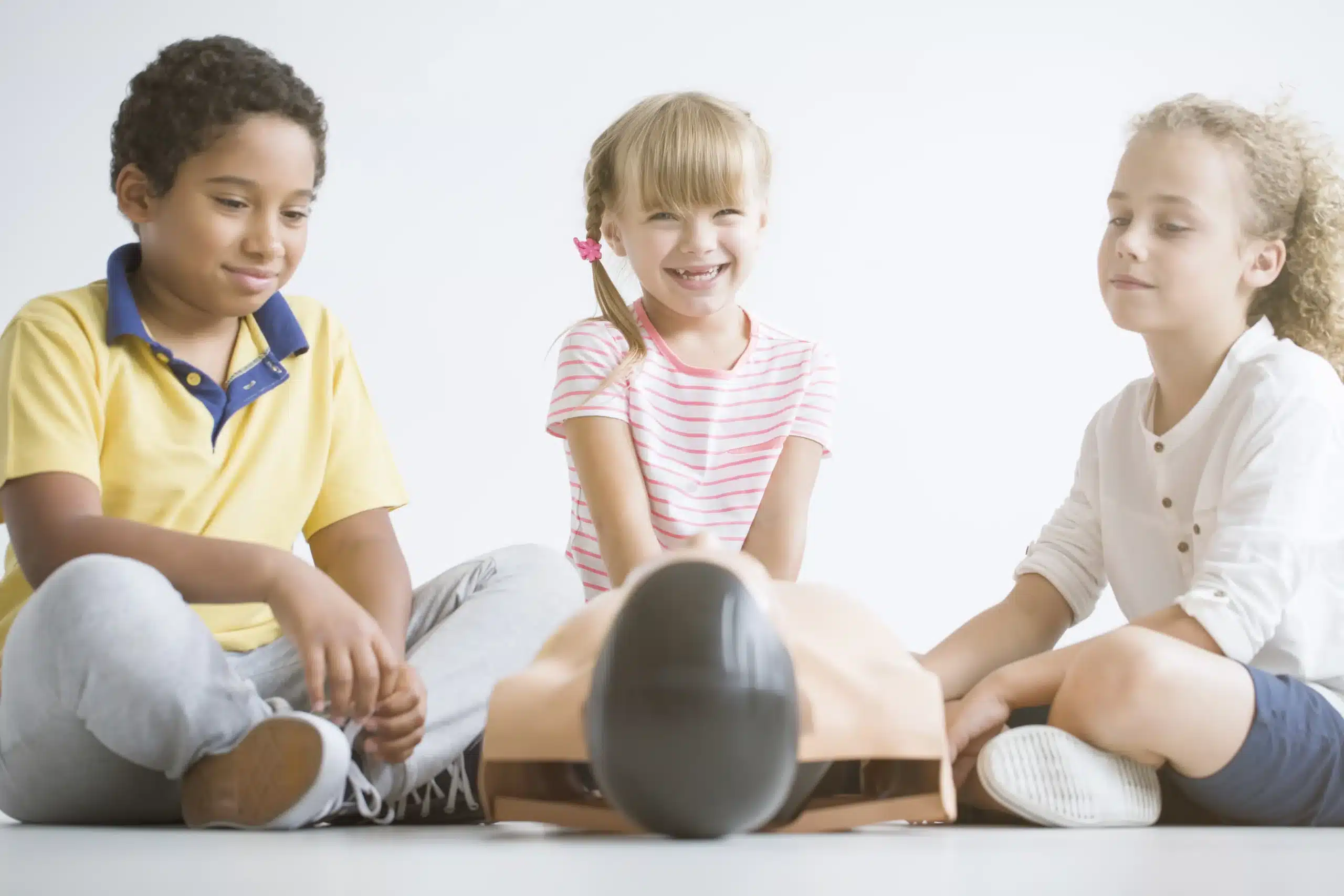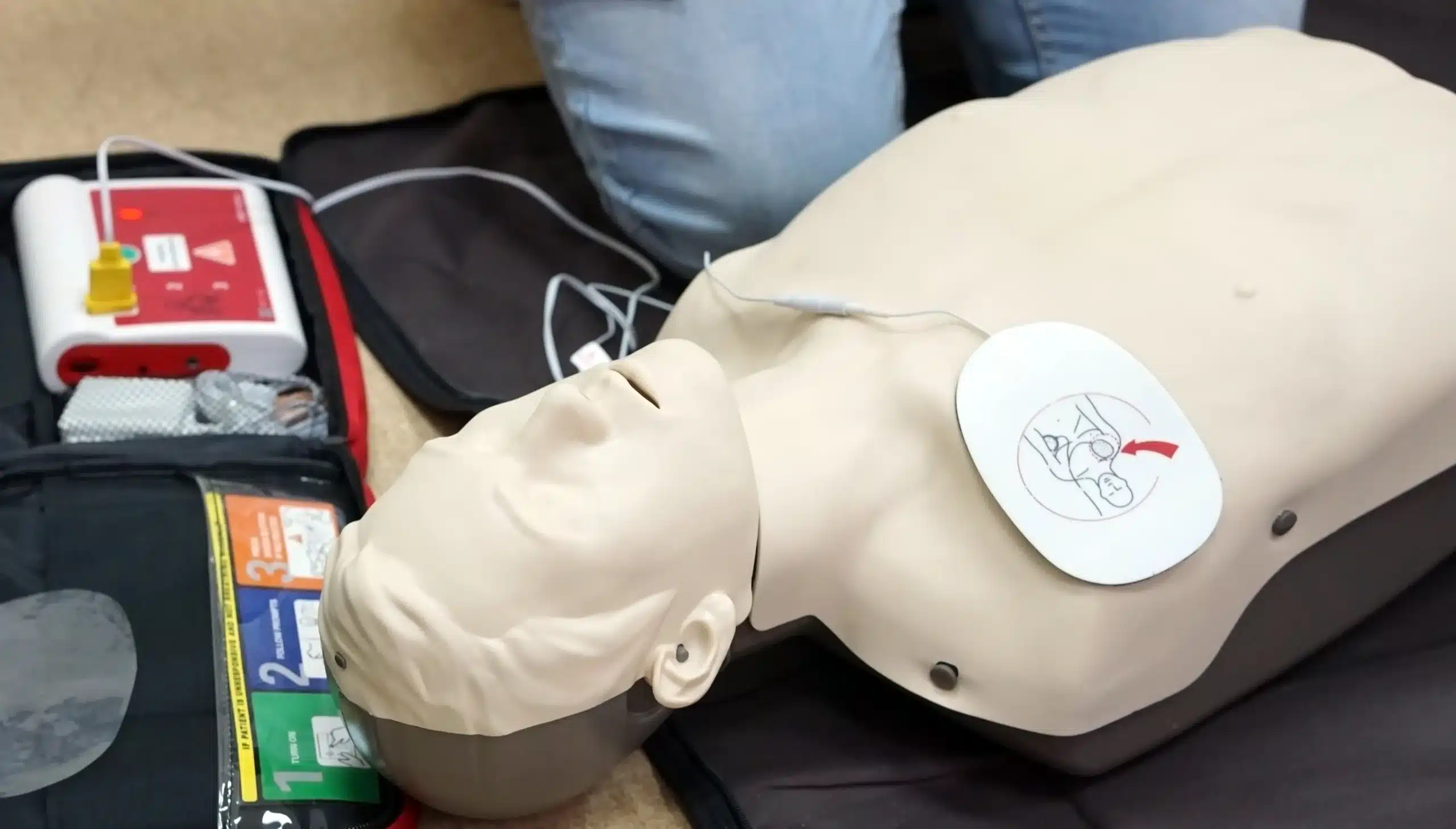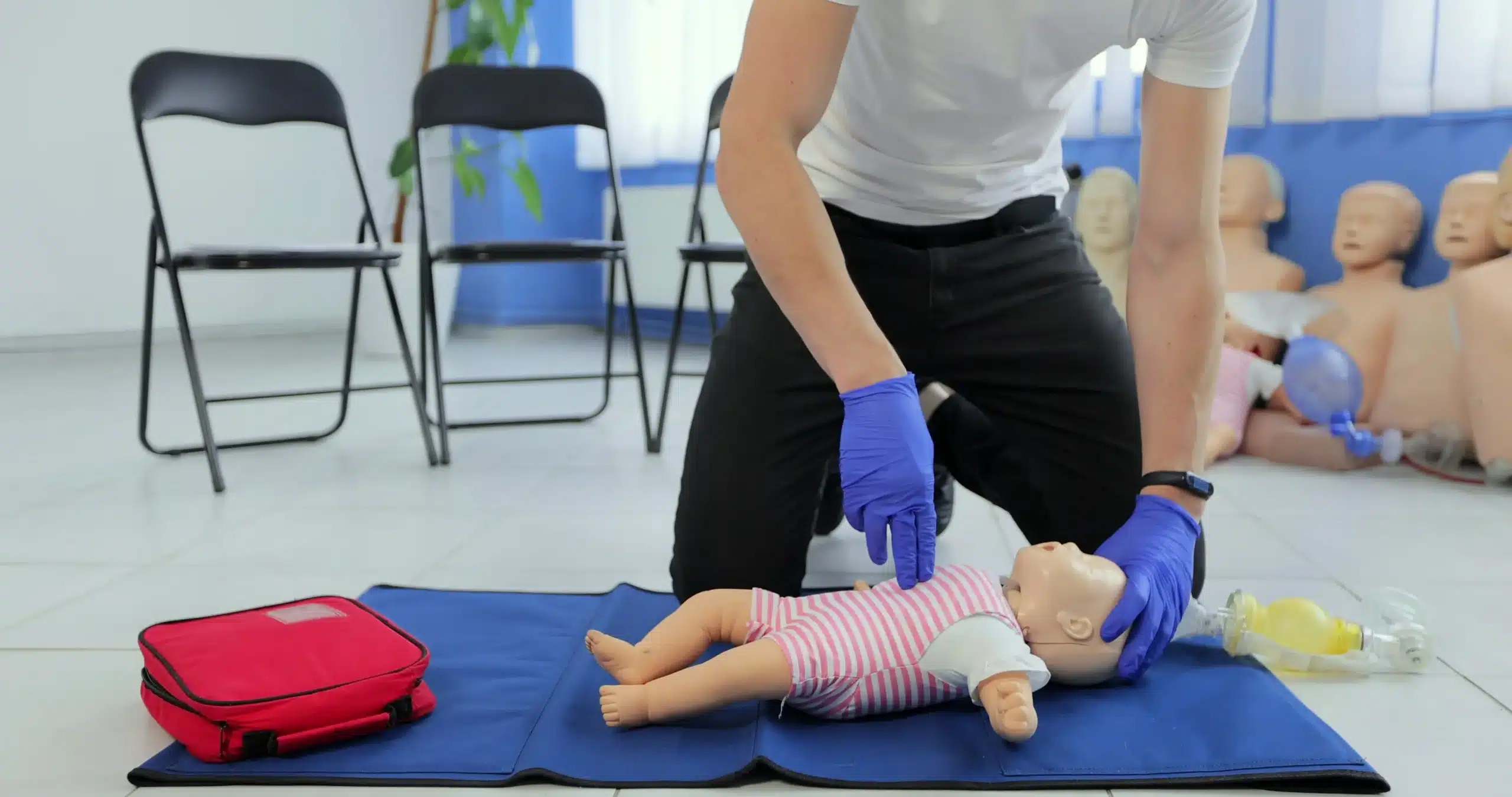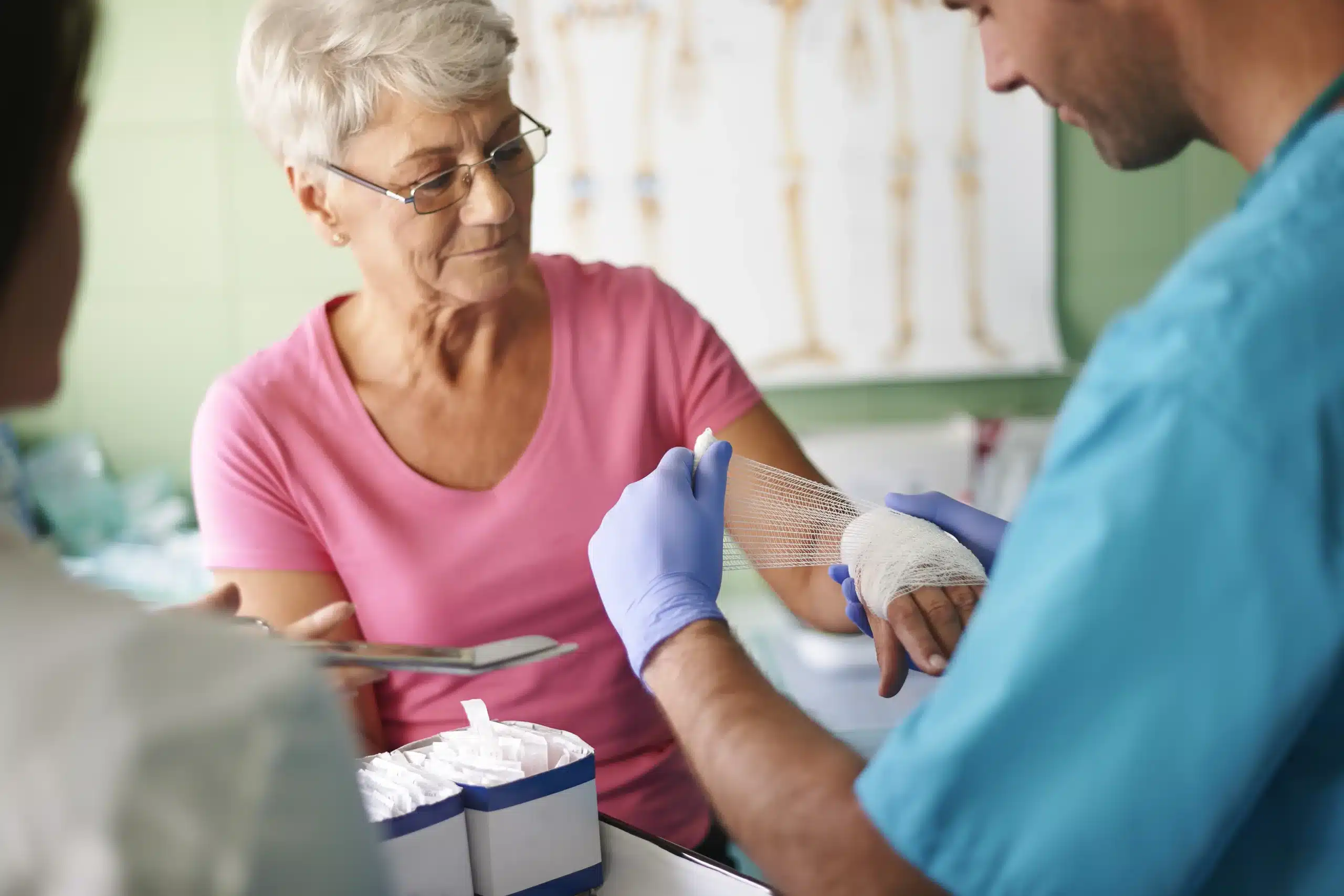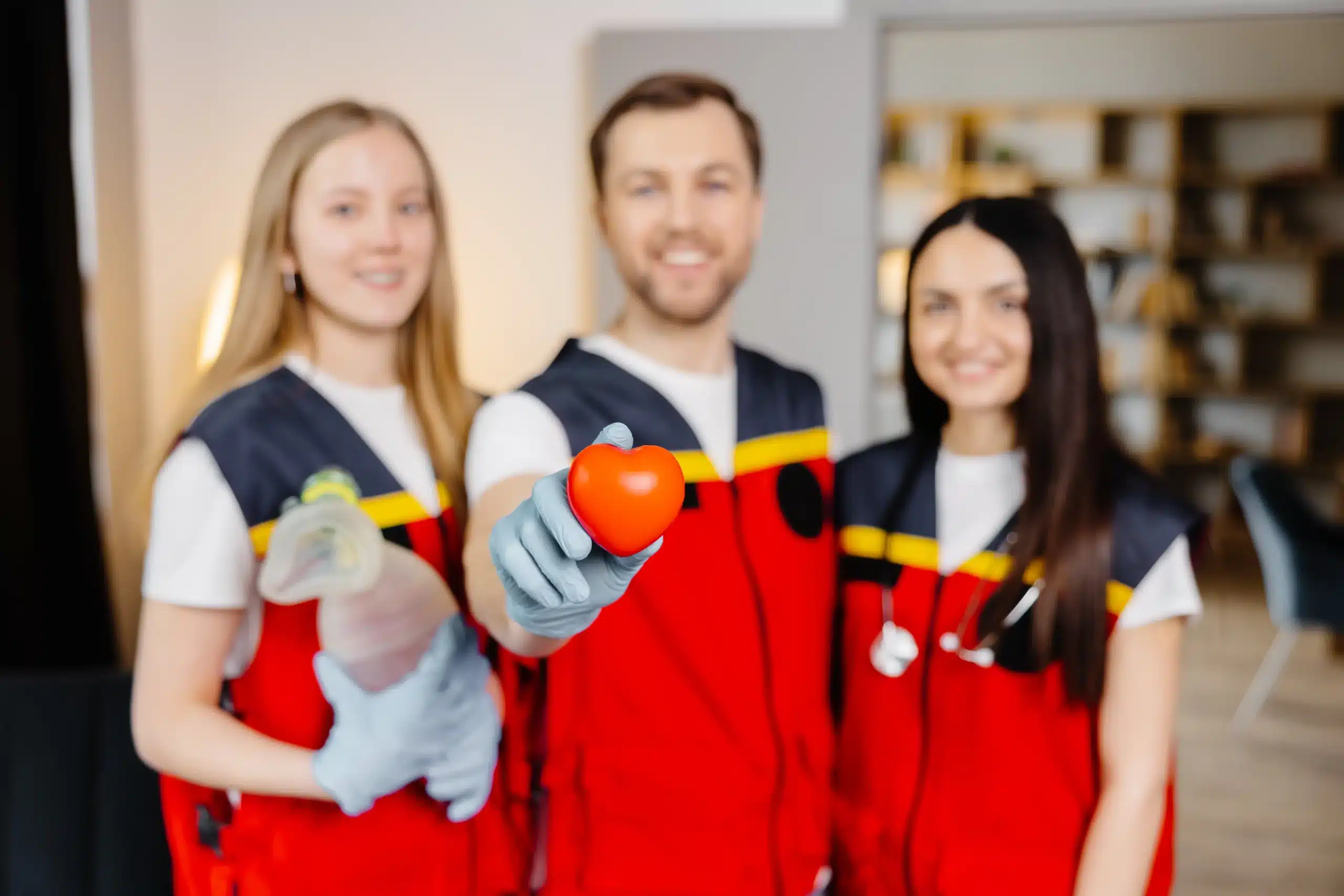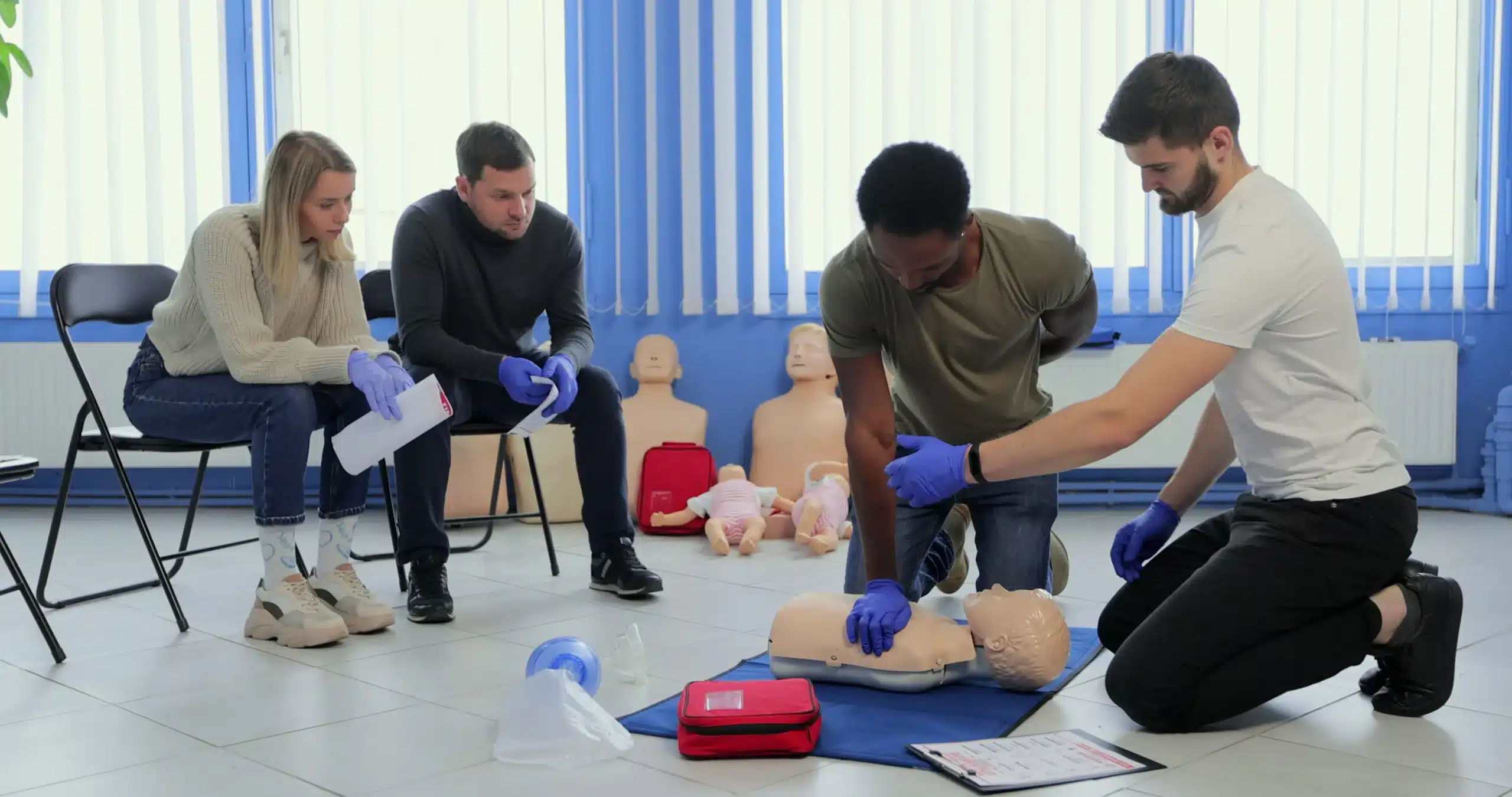Life is unpredictable. Medical emergencies can happen anytime, anywhere. Being equipped with CPR and first-aid skills can help you respond effectively in critical situations. This guide is your go-to resource for finding CPR and first-aid training in Palo Alto. We’ll cover the different types of courses available, from basic CPR to advanced life support, and explain why AHA certification matters. We’ll also delve into course costs, available discounts, and the registration process. Plus, we’ll share tips on how to choose the right course and prepare for your training. Let’s get started on your journey to becoming a confident first responder.
Key Takeaways
- Find the right CPR and first aid course for your needs: Whether you’re a healthcare provider, a parent, or simply want to be prepared, various courses are available, from basic CPR to advanced certifications like ACLS and PALS. Consider your specific requirements when choosing.
- AHA certification matters: Ensure your training meets the latest guidelines by selecting an AHA-certified program. This is often a prerequisite for healthcare jobs and demonstrates a commitment to high-quality training. Many providers in the Palo Alto area offer AHA-certified courses.
- Prepare for a positive learning experience: Research different training centers, compare costs, explore available discounts (like group or student discounts), and consider factors like location and scheduling flexibility. Contact providers directly to address any questions and ensure the course aligns with your learning style and preferences.
What is CPR and First Aid Training in Palo Alto?
CPR and first aid training gives you the skills to handle medical emergencies. These skills can help you save lives and minimize injuries in various situations, from the workplace to your home. In Palo Alto, several organizations offer comprehensive training programs that meet American Heart Association (AHA) guidelines, ensuring you receive high-quality instruction. Let’s explore what these courses offer.
Available Course Types
Whether you’re a healthcare professional, a childcare provider, or simply want to be prepared, there’s a course for you. Palo Alto training centers offer a range of AHA-certified classes, including:
- CPR (Cardiopulmonary Resuscitation)
- BLS (Basic Life Support) for healthcare providers and professional rescuers. For more information, visit our BLS page.
- ACLS (Advanced Cardiovascular Life Support) for advanced medical professionals. See our ACLS page for details.
- PALS (Pediatric Advanced Life Support) for healthcare providers specializing in pediatric care. Our PALS page has more information.
- First Aid courses covering essential injury and illness management skills.
Why AHA Certification Matters
Choosing an AHA-certified training program is crucial. AHA certification ensures your training aligns with the latest evidence-based guidelines, giving you confidence in the skills you learn. Employers, especially in healthcare, often require AHA certification. It shows a commitment to high-quality training and demonstrates your preparedness for emergencies.
Course Length and Certification Validity
CPR and first aid course length varies depending on the content. Basic CPR and first aid courses can often be completed in a single day, while more advanced courses like ACLS and PALS may take longer. All courses lead to an official AHA certification card, valid for two years. This ensures your skills stay current with best practices.
Unique Offerings and Specializations
Some training centers offer specialized programs. For example, the Resuscitation Quality Improvement (RQI) program offers a flexible way for healthcare professionals to renew their BLS and ACLS certifications. RQI often involves online learning combined with a hands-on skills session, making it convenient for busy professionals. Many providers also offer group discounts for businesses training multiple people. Explore the unique offerings in Palo Alto to find the best fit.
Top Training Providers
Finding the right CPR and first aid training provider is crucial for a positive learning experience. Here are some reputable options in and around Palo Alto:
Redwood City CPR Classes
Redwood City CPR Classes offers a comprehensive range of American Heart Association (AHA) courses, including BLS, ACLS, PALS, and First Aid. They also offer group discounts and specialize in the innovative RQI program for medical professionals seeking efficient recertification. Serving Palo Alto, Redwood City, and Menlo Park, they provide flexible options to fit your schedule. Redwood City CPR classes also has a low price guarantee. Learn more about their BLS training, ACLS certification, or PALS courses. For larger groups, explore their group discount options.
Safety Training Seminars
Safety Training Seminars, a woman-owned AHA Training Center, delivers high-quality CPR and first-aid training in Palo Alto. They offer courses in BLS, ACLS, PALS, and First Aid, taught by certified instructors who emphasize practical skills and real-world application. Explore their CPR and first-aid training options.
Bay Area CPR
Bay Area CPR focuses on AHA-certified courses, including BLS, ACLS, PALS, CPR, and First Aid. They also provide specialized training such as Neonatal Resuscitation Program (NRP) and EMSA Pediatric CPR & First Aid. Their engaging and informative approach builds confidence in emergency situations. Learn more about their courses.
In Home CPR
In Home CPR brings the training to you, offering CPR, BLS, First Aid, and ACLS certification classes at your home or business in Palo Alto. This personalized approach creates a comfortable learning environment, ideal for individuals and groups. Schedule your in-home CPR training.
Stanford Health Care
Stanford Health Care demonstrates its commitment to community health by offering CPR and First Aid training. These programs aim to equip community members with the skills to respond effectively to emergencies. Visit Stanford Health Care to learn more about their community health programs.
Course Costs, Discounts, and Registration
Knowing the costs, available discounts, and registration process upfront streamlines your training journey. This section breaks down what you can expect regarding pricing and how to sign up for a CPR and first aid course in the Redwood City area.
Pricing by Course Type
Redwood City CPR Classes offers various courses, each tailored to different needs. From basic first aid training to specialized certifications like ACLS and PALS, the price varies based on the course content and length. Check their website for a detailed price list for each course. Other providers like Safety Training Seminars also offer various CPR courses, allowing you to compare pricing and find the best fit.
Group and Student Discounts
Redwood City CPR Classes understands the importance of accessible training. They offer group discounts for businesses, organizations, or groups of friends training together. This can significantly reduce the per-person cost, making group training more affordable. Inquire about potential student discounts. Compare options with providers like Bay Area CPR, who also mention CPR class discounts, to find the best deal. Redwood City CPR Classes also has a low price guarantee, ensuring a competitive rate.
Registration Options and Flexible Scheduling
Registering for a course is straightforward. Redwood City CPR Classes offers flexible scheduling, with classes available throughout the week at various times to accommodate busy schedules. Register online through their website or contact them directly. Providers like Palo Alto CPR Classes offer similar scheduling flexibility.
Blended Learning and In-Home Training
Many training centers now offer blended learning, combining online coursework with in-person skills sessions. This lets you learn the theory at your own pace before practicing with a certified instructor. Some providers, like In Home CPR, offer convenient in-home CPR training in Palo Alto. This can be a great option for busy professionals or groups who prefer a private setting.
Choose the Right CPR and First Aid Course
Finding the right CPR and first aid course is essential for receiving effective training. This section helps you identify the perfect class based on your specific needs and preferences.
Assess Your Needs and Certification Requirements
Before you start searching for a course, ask yourself these key questions: Why do you need CPR certification? Are you a healthcare provider, a childcare professional, or someone seeking general knowledge? Understanding your motivation helps determine the right certification level. For healthcare professionals, BLS certification is often a requirement. Knowing the specific requirements of your profession or workplace is crucial for selecting the appropriate course.
Compare Course Offerings and Formats
Different providers offer various courses, including BLS, ACLS, PALS, and First Aid. Consider which combination of courses best suits your needs. Also, think about the course format. Do you prefer a traditional classroom setting, a blended learning experience, or in-home training? Redwood City CPR Classes offers group discounts, making it a cost-effective choice for families or colleagues learning together. Safety Training Seminars provides a range of courses in the Palo Alto area.
Consider Location and Accessibility
Convenience is key when choosing a course. Look for classes offered in a convenient location. Check if the provider offers weekend or evening classes to accommodate your schedule. Flexible scheduling options can make fitting training into your busy life much easier. Redwood City CPR Classes serves surrounding areas like Menlo Park and Redwood City, expanding access to quality training. You can find convenient CPR and first-aid training in Palo Alto.
Evaluate Instructor Qualifications
The quality of instruction significantly impacts your learning experience. Research the instructors’ credentials and experience. Experienced instructors can provide practical insights and answer your questions effectively. For those pursuing healthcare careers, ensure the instructors have the relevant medical background to teach BLS for healthcare providers. A knowledgeable instructor can make all the difference in your confidence and preparedness for real-life emergencies.
Prepare for Your CPR and First Aid Training
Getting ready for your CPR and first aid training can make a real difference in how well you do in the course and how much you remember. Here’s what you should know before you go:
What to Expect
Redwood City CPR Classes offers a variety of CPR and first aid courses, including BLS, ACLS, PALS, and First Aid certification. As an American Heart Association (AHA) Training Center, our training follows the latest AHA guidelines.
Provided Materials and Equipment
Our CPR and first aid classes use a blended learning approach, combining online learning with an in-person skills test. You’ll complete the online portion (RQI) at your own pace before your in-person skills session. The online part usually takes 1–2 hours for BLS and 3–4 hours for ACLS or PALS. We provide all the materials and equipment you’ll need for both the online and in-person components. Make sure to watch the videos we provide—they’ll significantly improve your chances of passing the skills test.
Tips for Certification Success
Reviewing the pre-course videos increases your chances of a successful skills test. The skills test uses a voice-assisted manikin (VAM). While you’ll be on your own during the test, phone support is available if you need it.
Certification and Renewal
After successfully completing both the online and in-person components, you’ll receive an official AHA certification card, valid for two years.
Common Concerns and Questions
We understand that you might have questions before signing up. CPR training involves some physical activity. If you have any physical limitations, please think about them before registering. Contact us to discuss any concerns. We offer flexible rescheduling options if needed.
Related Articles
- Pediatric CPR & First-Aid Classes in Palo Alto CA
- BLS Certification in Palo Alto: A Complete Guide
- First Aid Training in Menlo Park: A Complete Guide – Redwood City CPR Classes
- Advanced Cardiac Life Support (ACLS) in Palo Alto CA
Frequently Asked Questions
How do I choose between CPR, BLS, ACLS, and PALS certification? The best certification for you depends on your specific needs. CPR and basic first aid are good foundational skills for anyone. BLS is generally required for healthcare providers and professional rescuers. ACLS is for advanced medical professionals like paramedics and critical care nurses, while PALS is geared towards healthcare providers working with children. Think about your current role and future career goals when making your decision.
What if I have physical limitations? Can I still participate in CPR training? CPR training does involve some physical activity, like chest compressions and lifting. If you have any physical limitations, it’s a good idea to discuss them with the training provider before registering. Many providers are happy to accommodate individual needs and can offer modifications or alternative techniques.
How long does CPR certification last, and how do I renew it? AHA CPR certification is typically valid for two years. Renewal involves taking a recertification course. Some providers offer streamlined renewal options like the RQI program, which combines online learning with a shorter in-person skills session. This can be a more convenient way to stay current with your certification.
What should I expect during a CPR and first aid class? Most classes use a blended learning format, meaning you’ll complete online coursework at your own pace before attending an in-person skills session. During the in-person session, you’ll practice techniques on mannequins and receive feedback from certified instructors. Expect a hands-on learning experience that emphasizes practical skills and real-world scenarios.
What if I fail the skills test? Don’t worry too much about the skills test. Most providers allow for retakes. The instructors are there to help you succeed, and they’ll provide guidance and support if you need it. Reviewing the pre-course materials and practicing the techniques can significantly increase your chances of passing on the first try.
